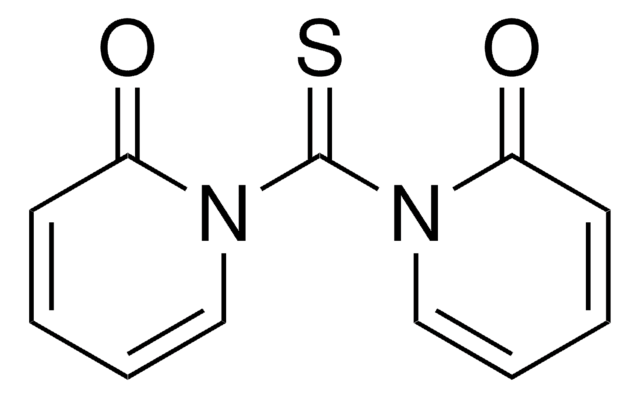115150
Thiophosgene
Synonyme(s) :
Thiocarbonyl chloride
About This Item
Produits recommandés
Densité de vapeur
4 (vs air)
Niveau de qualité
Capacité de réaction
reaction type: Carbonylations
Indice de réfraction
n20/D 1.548 (lit.)
Point d'ébullition
70-75 °C (lit.)
Densité
1.50 g/mL at 20 °C (lit.)
Groupe fonctionnel
chloro
Température de stockage
2-8°C
Chaîne SMILES
ClC(Cl)=S
InChI
1S/CCl2S/c2-1(3)4
Clé InChI
ZWZVWGITAAIFPS-UHFFFAOYSA-N
Vous recherchez des produits similaires ? Visite Guide de comparaison des produits
Catégories apparentées
Application
Mention d'avertissement
Danger
Mentions de danger
Classification des risques
Acute Tox. 3 Inhalation - Acute Tox. 4 Oral - Eye Dam. 1 - Skin Irrit. 2 - STOT SE 3
Organes cibles
Respiratory system
Code de la classe de stockage
6.1A - Combustible acute toxic Cat. 1 and 2 / very toxic hazardous materials
Classe de danger pour l'eau (WGK)
WGK 1
Équipement de protection individuelle
Eyeshields, Faceshields, Gloves, type ABEK (EN14387) respirator filter
Faites votre choix parmi les versions les plus récentes :
Déjà en possession de ce produit ?
Retrouvez la documentation relative aux produits que vous avez récemment achetés dans la Bibliothèque de documents.
Les clients ont également consulté
Notre équipe de scientifiques dispose d'une expérience dans tous les secteurs de la recherche, notamment en sciences de la vie, science des matériaux, synthèse chimique, chromatographie, analyse et dans de nombreux autres domaines..
Contacter notre Service technique










